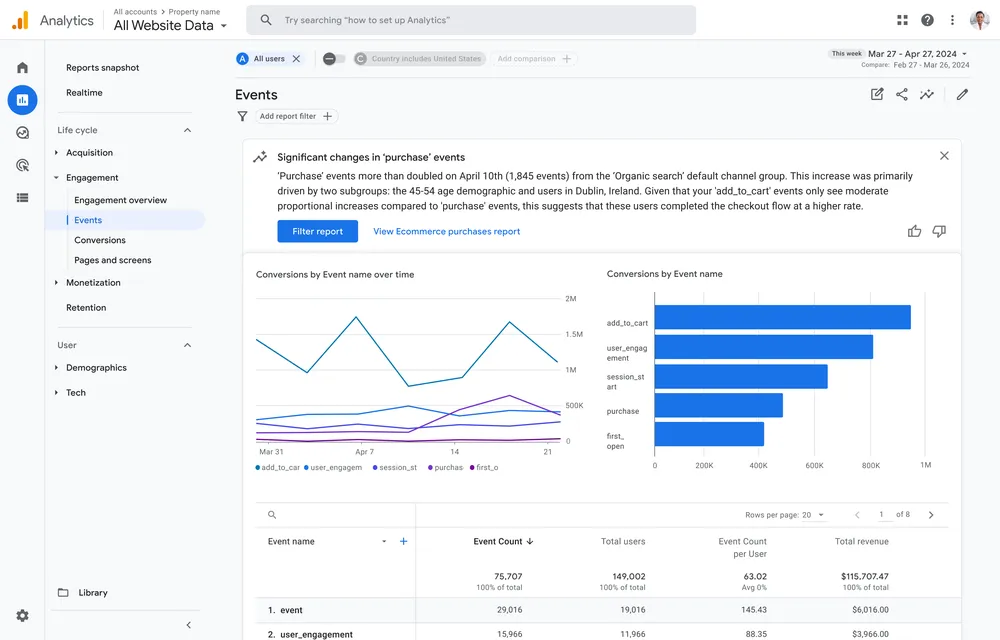Exploring the Intersection of AI and Small Business Marketing Strategies: Success Stories
Meta Description: Discover how small businesses are leveraging AI technologies to enhance their marketing strategies through inspiring success stories and practical applications.
In today's technological landscape, artificial intelligence (AI) has emerged as a game changer in marketing, especially for small businesses looking to enhance their strategies and improve customer engagement. This blog aims to educate small business owners on the practical applications of AI, highlight success stories, and illustrate the significant benefits that come with adopting intelligent marketing solutions. I'm Emilia Radic, an SEO specialist with over 5 years of experience in optimizing digital marketing strategies for various organizations. My goal is to inspire small business owners to leverage AI technologies to drive growth and success.
Understanding AI in Marketing
What is AI?
At its core, artificial intelligence refers to computer systems designed to mimic human intelligence, allowing machines to perform tasks that typically require human cognition. This includes learning from data, recognizing patterns, and making decisions. In a marketing context, AI tools can analyze consumer behavior, automate repetitive tasks, and enable personalized customer experiences.
Types of AI Tools
Some popular AI-driven marketing tools that small businesses can utilize include:
- ChatGPT for enhancing customer service interactions

- HubSpot's AI features for lead scoring and customer relationship management
.png?width=540&name=Hero_Image_EN%20(1).png)
- Google Analytics with AI-powered insights to optimize marketing strategies based on user behavior

The Growth of AI in Marketing
The rise of AI in marketing is substantiated by significant statistics. A report by Gartner predicts that by 2025, 60% of marketing leaders will utilize AI to augment human intelligence for improved customer interactions. Furthermore, research from Salesforce reveals that 51% of marketing leaders already employ AI to support their customer engagement efforts.
These statistics demonstrate the increasing reliance on AI technologies to enhance marketing effectiveness, suggesting that small businesses must embrace these advancements to remain competitive.
Success Stories: Real-Life Applications of AI in Marketing
Diverse Examples Across Sectors
Retail Sector - Zappos: Zappos, a well-known online shoe and apparel retailer, utilizes AI to offer personalized product recommendations based on individual browsers' behavior, leading to an increase in upsell and cross-sell opportunities.
E-commerce - Stitch Fix: This online personal styling service uses AI algorithms to recommend clothing tailored to individual customer preferences. The implementation of AI not only improved customer satisfaction but also fostered a loyal customer base, proving how data-driven insights can enhance user experience.
Local Business - A Cozy Café: A hypothetical local café integrated AI-powered chatbots on its website, facilitating seamless customer interaction, including order inquiries and reservations. This innovative approach led to a 30% increase in reservation rates over three months, showcasing the potential AI has for driving conversions in small businesses.
Practical Applications of AI in Marketing
Enhancing Personalization
AI enables bespoke marketing strategies through targeted advertising and personalized communication. For instance, email marketing platforms like MailChimp use AI to predict effective subject lines based on subscriber behavior, improving email open rates.
Utilizing Predictive Analytics
Tools like Google Analytics leverage machine learning to forecast potential customer behaviors, enabling small businesses to adjust their marketing strategies in advance. Such insights lead to better allocation of resources, ultimately resulting in increased ROI.
Streamlining Content Creation
AI can significantly enhance content marketing efforts; tools are available that support blog writing, social media management, and SEO-driven articles. This optimization increases output while saving time, essential for small businesses with limited resources.
Overcoming Hesitations Towards AI Adoption
Addressing Common Objections
Many small business owners may be hesitant to implement AI due to concerns like high initial costs or complexities involved in the setup. However, the reality is that AI usually leads to long-term savings through marketing automation and efficiency improvements. By employing cost-effective AI tools, businesses can reallocate budget towards growth opportunities.
The ROI of AI Tools
Investing in AI can yield significant returns. For example, small businesses can benefit from tools that automate email marketing campaigns to lower customer acquisition costs. AI insights allow for better precision in targeting, improving customer engagement and conversion rates.
Resources for Further Learning
To stay informed, small business owners can access free online courses or webinars that enhance their understanding of AI in marketing. Some valuable resources include:
- Coursera: Offering insight into the fundamentals of AI
- HubSpot Academy: Comprehensive materials on marketing strategies, including AI
Additionally, industry leaders such as Neil Patel and Gary Vaynerchuk share actionable insights on AI's role in marketing through their blogs and social media channels.
Future Trends in AI and Marketing
Emerging Technologies
As AI evolves, businesses can expect to see voice search optimization playing a pivotal role in marketing strategies. Additionally, augmented reality (AR) technologies are anticipated to revolutionize product demonstrations, providing potential customers with immersive experiences that encourage purchase decisions.
Navigating Data Privacy Concerns
With increasing regulations like GDPR, businesses must learn to utilize AI responsibly, ensuring that their practices respect user privacy while still gaining insights to optimize marketing strategies. This balance is essential for building consumer trust while reaping the benefits of advanced technologies.
Conclusion
In navigating the intersection of AI and small business marketing, it's critical to recognize the immense potential that these technologies hold for enhancing strategies, fostering innovation, and driving growth. As you explore the possibilities AI offers, consider how you can implement these insights in your own marketing approaches.
Have you taken steps towards integrating AI in your business marketing efforts? Share your experiences, thoughts, or any questions in the comments below. Let's engage in a meaningful conversation around the exciting future of AI in small business marketing!
